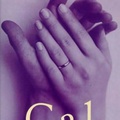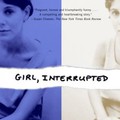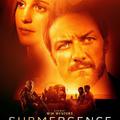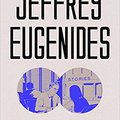Leo Benedictus: The Afterparty

I read a very good and enthusiastic post about The Afterparty on Kimbofo’s blog a couple of months ago, and based on her post, it was pretty easy for me to draw the conclusion that I would probably like this novel. Sometime later, I read an equally good, though critical post about the book on Kevin’s blog, and also read through the majority of the circa 150 (and mostly critical) comments the post generated, and I became even more curious about the novel. (By the way, the comments themselves are very interesting, and what makes the whole thread even more so is that the author himself joined the discussion and managed to react to the not too favorable comments and argue in a friendly way, without any resentment whatsoever. I’m sure this is the way discussions among adults should work, but they don’t usually work this way, so reading 150 comments without any rudeness was immensely delightful for me.)
Of course it’s not an accident that Leo Benedictus keeps in touch with his readers and is on the lookout for reviews about his novel. But before I go into this, let me first tell you about the novel.
The Afterparty tells the story of the birthday bash and the subsequent afterparty of Hugo Marks, a 31-year-old movie actor. The main characters are Hugo himself; his wife, the (ex-)junkie supermodel Mellody; an indistinct journalist, Michael Knight, who ends up at Hugo’s party almost by accident, after his boss hands him over her own invitation; and young pop star and X-Factor participant Calvin Vance. These four people initially don’t really have too much to do with one another, but they get into various entanglements during the party and the afterparty, and by the end of the night it becomes obvious that things will never be the same again. The events themselves are made even more interesting by the fact that they are told from multiple points of view, and of course none of the events mean quite the same to the different characters.
Apart from the ’real’ story, the references to real life and to other novels which are hidden in the story, and the gently satiric depiction of the celebrity world, however, The Afterparty is also about the way a writer called William Mendez writes a novel about the birthday bash of Hugo Marks – a novel originally titled Publicity***** –, how he manages to get his novel published, and what ideas he has about the ways his novel should be publicized.
The blurb of The Afterparty says: „This book is different. You’ve never really read a book like this before.” I don’t consider myself a burned out reader who can never be pleased with anything because she had already seen it all, still, I must admit that I definitely did read books like this before. As regards, for instance, telling a story from multiple points of view, let me only mention some works of William Faulkner, Choderlos de Laclos or Bret Easton Ellis – but it’s true that I’ve never read a story in which the different characters’ parts are written in different fonts, and in which the font type itself plays as crucial a part in the characterization of characters as any detailed description about their personality or appearance. And I also read books dealing with the shallow and meaningless lives of celebrities; and also read novels which constantly kept reflecting on themselves and/or the outside world besides (or instead of) simply telling a story.
But it’s indeed true that I’ve never read a book incorporating all these, and I found the way Leo Benedictus mixes all these postmodern features and creates something he, for some reason, calls ’post-postmodern’ absolutely delightful. I’m not at all sure about the difference between postmodern and post-postmodern (if there is any), but I know that The Afterparty is exactly the kind of postmodern I love: it’s clever, funny, (self-)ironic, and instead of dealing with matters of life and death, it deals with a question that happens to be one of my all-time hobby-horses: what is fiction and how does it relate to reality?
The Afterparty happens to be a piece of fiction which relates to reality quite directly. As I know it contains several references to real-life British celebrities and their infamous ways, so as I’m not that much into British celebrity life, I’m sure I missed several references or jokes in the novel. Still, I didn’t find this such a big problem as I found in the novel a lot of other things to entertain me.
For instance, the fact that in a truly clever postmodern way, The Afterparty contains itself and the story of its on marketing as well. Let me mention only a few examples of how this works. One of the marketing ploys devised by William Mendez, the novelist in the novel, is that the publisher should encourage readers to publish tweets on Twitter which contain the #afterpartybook identifying label, and promise that at least one such tweet per user will be published in the appendix of the 2012 paperback edition of the novel. And what a surprise, this happens to be one of the marketing ploys surrounding The Afterparty. And it is probably also a part of the marketing that Leo Benedictus himself participates actively in creating a hype around his novel, sometimes acts in a contradictory way, and pretends that he has a huge ego.
Well, perhaps he does have a huge ego; and perhaps I’m a mindless consumer to be set up by such marketing techniques, but I find the cheeky and entertaining way The Afterparty is advertised immensely clever and funny. (Therefore I already published and afterparty-tweet and I can hardly wait to see my username in print in the 2012 paperback edition.)
There’s something that bothers me, though. I wonder how lasting The Afterparty will prove after its novelty wears of, or if we take away its current relevance and the games which surrounded its first publication this March, and which won’t be interesting at all one or two years from now. Right now I will not venture to decide this question. However, I consider The Afterparty such a good book that quite probably I will reread it in a couple of years’ time, and then I will write another post about my impressions.





